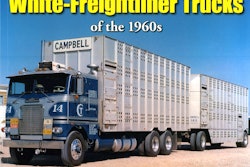Contrary to the ruling of a federal district court, various aspects of the concession agreement imposed on carriers operating at the Port of Los Angeles are preempted by federal law, the American Trucking Associations told a federal appeals court.
On Dec. 28, ATA submitted its 89-page brief to the U.S. Court of Appeals for the Ninth Circuit in the latest stage of its ongoing litigation against the City of Los Angeles.
The port’s concession agreement includes a number of provisions that the trucking industry objected to – most notably a phased-in ban on independent owner-operators. Ultimately, all drivers operating at the port had to be employees of licensed motor carriers. Other provisions banned use of on-street parking and required filing of extensive reports regarding financial capability and maintenance.
After more than two years of litigation, a U.S. district court in Los Angeles ruled that several of the concession provisions did not affect price, routes or services of motor carriers. The court also ruled that other provisions that normally would be preempted — the bans on use of owner-operators and on-street parking — were exempt from federal preemption under the “market participant doctrine,” which allows state and local governments to take actions that otherwise would be preempted if they are acting as businesses or customers rather than as regulators. The district court did, however, block enforcement of the owner-operator ban pending ATA’s appeal.

ATA told the appeals court that the concession agreement clearly relates to price, routes and services and, therefore, is prohibited by a 1994 federal statute. The agreement gives the Port of Los Angeles the right to exclude motor carriers from providing drayage services and dramatically increases the cost of providing those services – including an increase of more than $500 million a year due to the owner-operator ban and more than $21,000 per truck for off-street parking.
In addition, ATA challenges the district court’s rationale regarding the market participant doctrine, arguing that the Port of Los Angeles neither procures drayage services under the concession agreement nor participates in the drayage market. Rather, the concession agreement is regulation designed to promote governmental policies, ATA says. Nor does the port’s partial grant program justify the regulations given that nearly two-thirds of new trucks serving the port were privately financed and subsidies for the remaining trucks covered only 11 percent of the purchase cost, ATA says.









